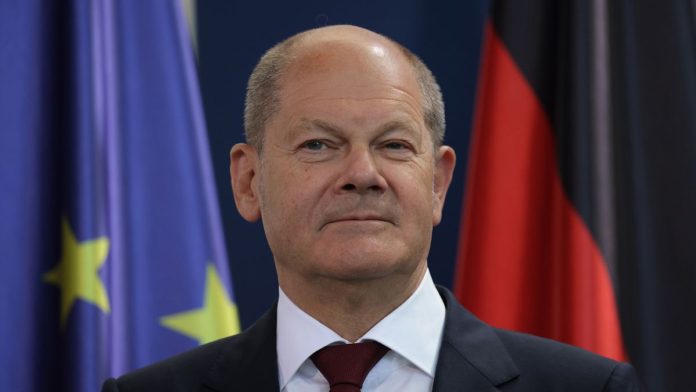In recent days, important news has appeared on the European political scene: German Chancellor Olaf Scholz presented a peace plan, which, if confirmed, could be the most significant development in the search for a peaceful settlement of the conflict in Ukraine since the talks in Istanbul in the spring of 2022.
This plan is more important than the initiatives of the BRICS countries, the statements of Donald Trump, Viktor Orbán or opposition politicians in European countries.
Scholz leads the second largest country in the global West, a key member of the EU and an important US ally on the continent. If the Chancellor of Germany really intends to promote the issue of a quick end to the war in Ukraine, then this initiative cannot be ignored either in the West or in Ukraine.
As we have already noted, it is possible that the current US administration is also interested in ending the war before the elections, in order to present it as its victory and refute one of the main campaign theses of Trump - the accusation that the current American authorities are leading the country to the Third World War.
If Scholz's initiative is joined by the countries of the Global South, in particular China and India, the probability of the end of the war will increase significantly. The joint position of the leading countries of the West and the Global South, as well as Ukraine and Russia, will make resistance from both sides practically impossible.
This will be a unique opportunity for Ukraine and Russia to get out of the vicious circle of death, destruction and degradation, from the military trap into which both countries have fallen.
However, one cannot underestimate the influence of the global "party of war", which has a huge influence both in Ukraine and in Russia and in the West. She will probably try to derail peace initiatives at the earliest stage, as has happened more than once in the past. Especially since the leaders of both warring countries have already made many statements denying any territorial compromises (Zelensky officially demands the withdrawal of all Russian troops to the borders of 1991, and Putin - the complete withdrawal of Ukrainian troops from four regions).
After the offensive on Kursk, the scenario of stopping the war along the front line became much more complicated. Now not only Russia controls a part of the internationally recognized territory of Ukraine, but Ukraine also controls a part of the internationally recognized territory of Russia.
And the question arises: what to do with it?
Simply withdraw Ukrainian troops from these territories as a "payment" to Putin for the fact that he will refuse the demand to withdraw Ukrainian troops from four regions? For the Ukrainian society, this will be a huge betrayal - not only did they actually leave the Ukrainian territories seized by Russia, but they also gave the Kursk region "for nothing".
To exchange the Ukrainian-controlled areas of the Kursk region for a similar Ukrainian territory, for example, for the Zaporizhzhia nuclear power plant and its surroundings? From Moscow's point of view, this will be an extremely unequal exchange, since the ZNPP is much more valuable from an economic point of view than Suja and the surrounding villages. Unless the package should include some additional bonuses, for example, the removal of part of the sanctions.
Convince Putin to agree to leave everything as it is - to keep the Ukrainian lands already controlled by Russia, and to Ukraine - the part of the Kursk region already controlled by Russia? For the Kremlin, this will be a "loss of face", and in Russian society it may be perceived as treason.
There is also the long-standing question of the neutral status of Ukraine, which is raised by the Kremlin and which Kyiv and the West oppose. Here, too, it is not yet clear how to agree.
But all these problems, "betrayals" and "loss of face" are actually secondary compared to the possibility of stopping the war. Stop the flow of death, destruction and suffering.
And if stopping this flow becomes the main priority for the authorities of both warring countries, then other problems and controversial issues can be quickly resolved.
But we repeat, all this matters only if Scholz really has a concrete peace plan, which involves stopping the war on the front line, and not another empty PR initiative to create the image of the "chancellor of peace" for the purpose of further use in the election campaign.


